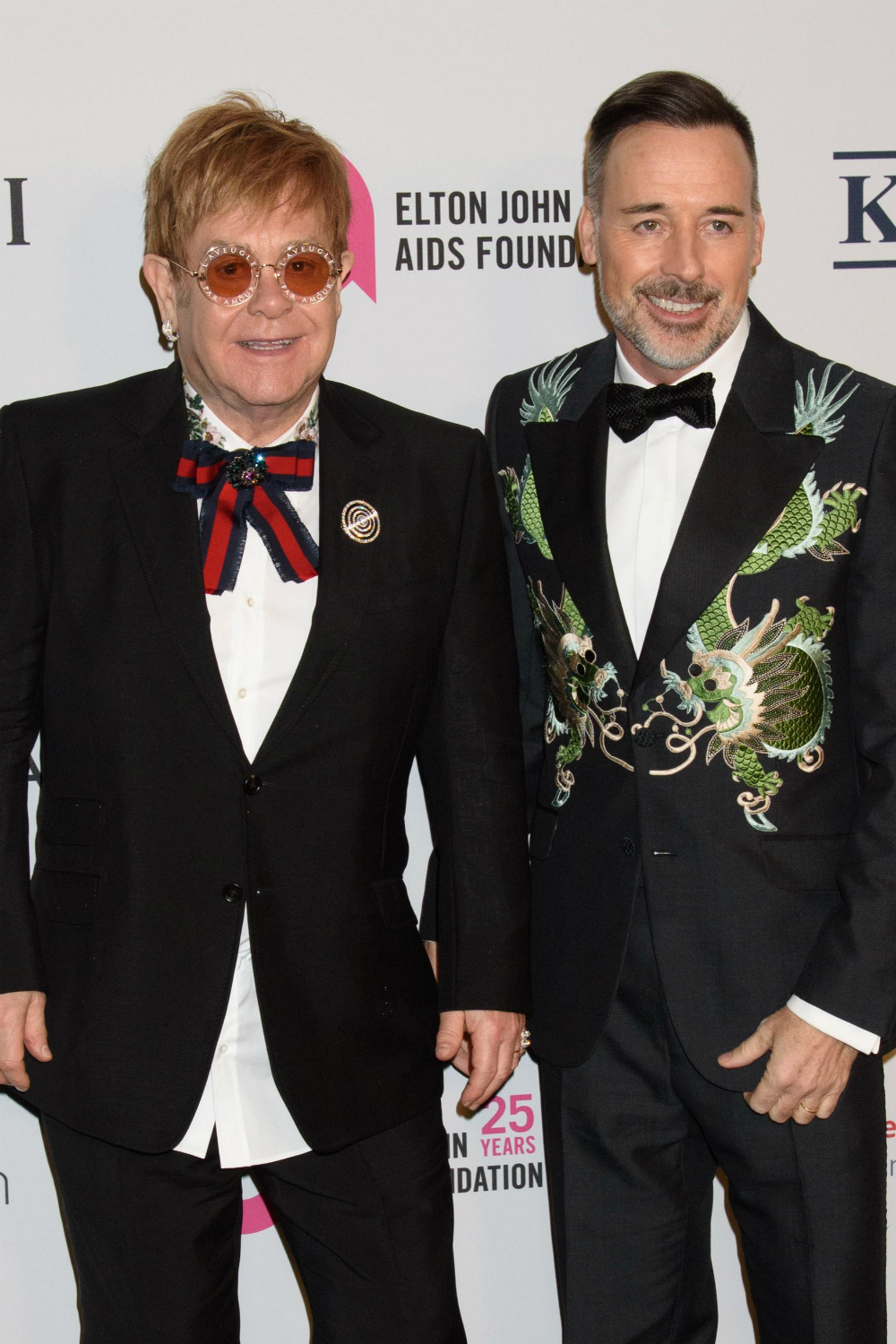Would you use a surrogate to have your baby, like Kim and Kanye?
Kim and Kanye - as well as Sarah Jessica Parker, Elton John and Nicole Kidman - have used a surrogate to carry their child. Polly Dunbar investigates how surrogacy went mainstream

Kim and Kanye - as well as Sarah Jessica Parker, Elton John and Nicole Kidman - have used a surrogate to carry their child. Polly Dunbar investigates how surrogacy went mainstream
When Kim Kardashian announced she had used a surrogate to carry her third baby, her decision sent social-media commentators into a frenzy. There was speculation that the star was too posh, lazy or rich to bother with the marathon of pregnancy and childbirth, but it also put a spotlight on a practice that is becoming increasingly widespread.
In fact, Kardashian’s decision to have a surrogate baby - a little girl born on 15th January - was medical, after she suffered with placenta accreta - a condition where the placenta attaches too deeply into the uterine wall and can lead to haemorrhaging – during her first two pregnancies.
Her announcement last September came in the same month that Natalie Massenet, the founder of Net-a-Porter, became a mother for the third time at 52 when a surrogate gave birth to her son, Jet, in LA. Actresses Sarah Jessica Parker and Nicole Kidman, supermodel Tyra Banks and singer Elton John are among other A-listers who have used surrogates.

Today, surrogacy rates are rising rapidly, with 400 surrogate babies registered in Britain in 2016, almost four times the number in 2011. For couples who’ve suffered repeated miscarriages, failed IVF treatments or early menopause, a woman offering to carry a baby for them can transform their lives, giving them a child they could never otherwise have had. For gay male couples, it’s a game changer.
In the US, commercial surrogacy is legal in many states, but it can cost vast sums – the Kim K surrogacy arrangement is thought to total almost £90,000. In Britain, by contrast, paying fees is illegal, although surrogates usually receive between £9,000 and £15,000 to cover expenses such as travel costs, childcare and maternity wear.
UK surrogacy
Katie Bezant gave birth to a baby girl – Saoirse – in December 2016. Although she is Saoirse’s biological mother, she does not consider herself her parent. Saoirse’s parents are David and Donncha Pexton-Hayes, a gay, married couple for whom Katie agreed to be a surrogate, an act of genuine altruism that has made their dream of parenthood a reality. Katie sees the family at least once a month, but when Saoirse is old enough to talk, she won’t call Katie ‘Mummy’.
Celebrity news, beauty, fashion advice, and fascinating features, delivered straight to your inbox!
‘I’m a close friend,’ says the 35-year-old, who visits the baby in Richmond, Surrey, spending hours playing with her in the park and cuddling her on the sofa before journeying back to her own home in Newport, Wales. ‘I see myself as an egg donor, not Saoirse’s mother. I got pregnant so that David and Donncha could have a child, and seeing how happy they are with her is my reward.’

The surrogacy cost
Surrogacy isn’t funded by the NHS, and it can be prohibitively expensive. Kerry and Mike Snape, a married couple from Stoke-on-Trent, are currently trying to conceive via a surrogate they met through Childlessness Overcome Through Surrogacy (COTS), but have found the costs crippling. Kerry, a 30-year-old ultrasound assistant, suffered bladder cancer as a baby, which left her infertile. ‘We got funding for two rounds of IVF with donor eggs, but then we found out my uterus was too scarred for me to carry a baby,’ she says. ‘When it became clear we needed surrogacy, the funding was taken away from us, which was devastating.
‘The eggs have cost around £14,000 and we’ve had to spend our life savings. It’s not our fault we need to use a surrogate, so why can’t we get the funding? We felt completely alone and unsupported, but COTS has been fantastic and we’re hoping Stacie, our amazing surrogate, will be pregnant soon.’

Surrogacy agencies
In the UK, there are three non-profit surrogacy agencies which help couples find a match and offer support and advice throughout the often physically and emotionally demanding process: Surrogacy UK, Brilliant Beginnings and COTS. It was through Surrogacy UK that Katie met Pilates instructor, David, 35, and Donncha, 34, who works in insurance. Katie is a single mother to a 14-year-old son, and decided to become a surrogate after reading an article about the process. ‘I was very drawn to the idea of helping people to have a child,’ she says. ‘A lot of people find their purpose through their work, but that wasn’t the case for me. When I started looking into surrogacy, I thought this is what I’m supposed to do.’
To become intended parents, David and Donncha had to complete an exhaustive questionnaire about their expectations and provide letters from their GPs stating that there was no physical or emotional reason why they shouldn’t have a child. Once they had been accepted, they wrote a profile about themselves, their hopes and interests. In May 2015, they got a call to say Katie had seen it and wanted to get to know them. ‘We were so excited,’ says David. ‘When we met, we liked her straight away. We have a lot in common – we all love 80s music and her son loves Marvel, and we do too.’

After failing to conceive using embryos created with donor eggs and David’s sperm, Katie offered to use her own eggs. ‘We were blown away by her generosity,’ says David. ‘It felt right because by then we’d got to know one another so well.’ In March 2016, she became pregnant via home insemination, and gave birth in Wales on 28 December. ‘I watched Saoirse being born and cut the cord,’ says David. ‘We were all in tears and hugging. Saoirse is the most amazing gift anyone could have given us.’
Katie says, ‘It was a little bit weird after we left the hospital, when the guys took the baby home, but I got back to normal pretty quickly. They always wanted me to be part of her life so she knows where she came from, and I love seeing them; we’re very close because we went through something huge together. I love Saoirse, but not the way I love my son. When you’re pregnant with your own child you think about what you’ll name them and imagine your lives together in the future. With surrogacy, you’re always thinking of how happy the couple will be when you hand them the baby.’
Surrogacy laws in the UK
Although the agencies help their members write agreements prior to the birth, covering everything from what’s expected of the surrogate in terms of her diet to what they’d do if the baby had foetal abnormalities, these aren’t binding in British law. Instead, the surrogate is the legal parent of the child – and if she’s married, her husband is, too – until a hearing in a magistrate’s court four to nine months after the birth, in which a parental order is granted and a new birth certificate issued.
Inevitably, this has led to problems, including some surrogates opting to keep the baby. In 2016, a court ruled that a woman who had agreed to be a surrogate for a gay couple after a 30-minute meeting in a Burger King restaurant could keep the child, because her learning difficulties had made her unable to ‘consent freely or unconditionally’.

Helen Prosser, who is co-owner of Brilliant Beginnings and legal practice Natalie Gamble Associates, says these battles are extremely rare, and happen when the parties aren’t clear about their expectations. ‘There are easier ways for a surrogate to get pregnant if she wants her own baby,’ she says. ‘But the legal framework in the UK at the moment is out of date, and leaves intended parents and surrogates vulnerable. Ultimately, we hope there’ll be a pre-birth order so the intended parents are legal parents from the moment the baby is born. That would be an enormous step forward.’ Currently, only couples can access parental orders, but Prosser hopes single people will soon be able to, too.
Many British couples choose to go to the US, where agreements are binding, but international would-be parents face costs of between £120,000 and £140,000. ‘There are more surrogates available there, and access to egg donors is also easier,’ says Prosser. ‘There simply aren’t enough surrogates in the UK.’ Although surrogacy in Asia and Africa can be cheaper, it’s not recommended.
The British system is built on a vast amount of trust between intended parents and their surrogate. The transaction is an intensely emotional one, which means that it can be difficult to navigate. Lisa Hoy, 41, has given birth to four surrogate children, as well as having four of her own. Her first experience, in 2006, left her disappointed. ‘I met a couple through Surrogacy UK and had a baby girl, Eleanor, for them using my eggs and the husband’s sperm. I get so much happiness from my own family, and I wanted to give that to someone else. I got really close to the mother, but contact gradually tailed off, and eventually it stopped altogether. The last photo I received of Eleanor was when she was six. She looks a lot like me, and I’ve found it upsetting not to see her growing up, as we’d agreed I would.’
Lisa, who lives in Crawley and is currently pregnant with her fifth child by her husband, Jason, chose not to use her own eggs again, but act as a gestational surrogate instead. ‘My second couple had a baby boy, George, and I still get photos of him. In December 2016, I gave birth to twins called Benjamin and Adrian for a gay couple. It was a very traumatic birth – I nearly died because I lost so much blood. But the guys were so supportive of me, and we’re still very close. The twins are gorgeous and they come to visit me often. It’s a wonderful feeling, knowing I’ve changed people’s lives.’
Katie is hoping to have another baby for David and Donncha, this time with Donncha as the biological father. ‘I’d be delighted to help them to complete their family,’ she says. ‘Being a surrogate is something I’m really proud of.’
The leading destination for fashion, beauty, shopping and finger-on-the-pulse views on the latest issues. Marie Claire's travel content helps you delight in discovering new destinations around the globe, offering a unique – and sometimes unchartered – travel experience. From new hotel openings to the destinations tipped to take over our travel calendars, this iconic name has it covered.